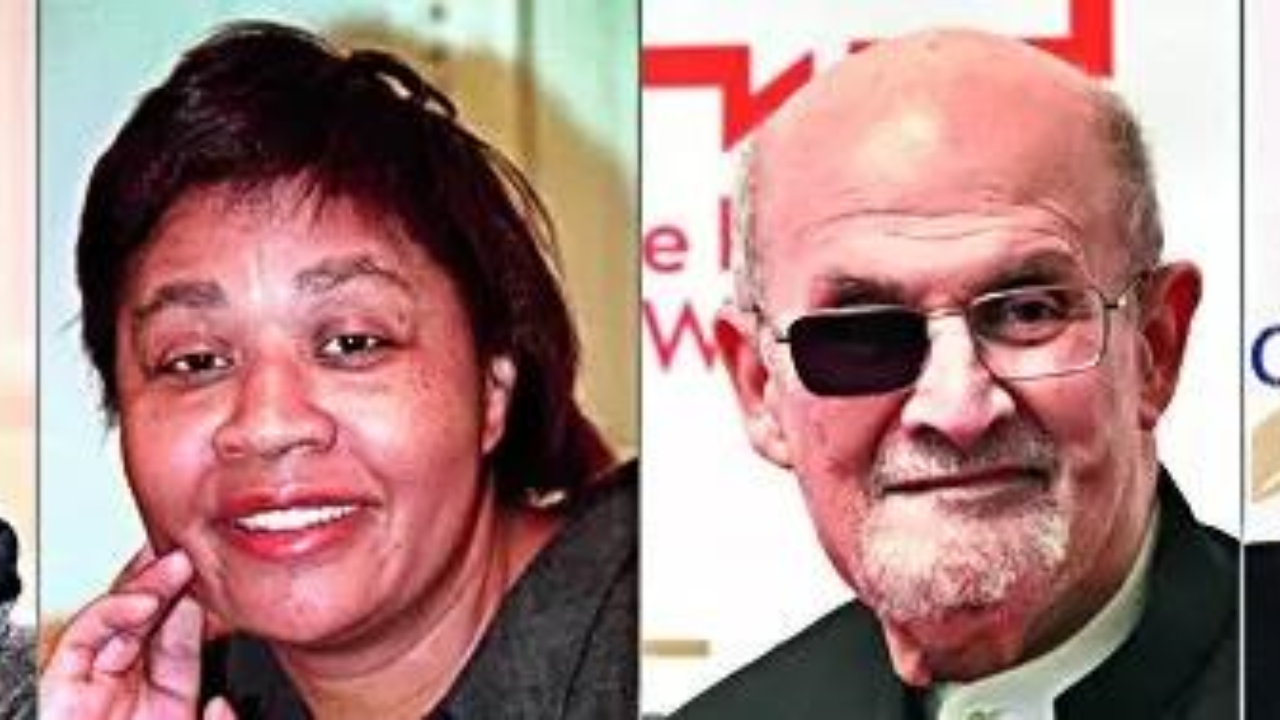STOCKHOLM: Will the Swedish Academy make a political statement when it awards the Nobel Literature Prize on Thursday? If so, it could crown a writer standing up for freedom of expression, experts think.
Among those mentioned as possible laureates are Russian author and outspoken Kremlin critic Lyudmila Ulitskaya, known for her epic novels often focused on personal relationships, and British author of Indian-origin Salman Rushdie, who survived a stabbing last year after living in hiding for years due to an Iranian fatwa calling for his death over his 1988 book “The Satanic Verses”.
Or the Academy could, as it has frequently done in the past, shine a spotlight on a lesser-known writer, such as China’s avant-guard fiction writer and literary critic Can Xue.
Honouring Ulitskaya, who lives in self-imposed exile in Germany, would make the point that “literature stands free from politics”, Lisa Irenius, culture editor at Swedish daily Svenska Dagbladet, told AFP.
It would be a bold choice to champion Russian culture at a time when Moscow is being lambasted for its war in Ukraine, she said. A prize to Ulitskaya would send “a very political message”, agreed Bjorn Wiman, culture editor at Sweden’s other main newspaper Dagens Nyheter. Wiman thinks Caribbean-American writer Jamaica Kincaid, whose novels draw on her own family life and experiences with colonialism and race, has a chance this year.
But what he would really love is to see Rushdie win.
“It’s time for him to win, and if he does, hats off to the Academy” for standing up for freedom of expression, which Rushdie embodies, Wiman said. The Academy has long been criticised for the overrepresentation of Western white male authors among its picks.
Since the Academy was torn apart by a 2018 #MeToo scandal, followed by its controversial pick of Austrian author Peter Handke for the 2019 Nobel, the body has tried to shed its old skin.
Last year, it gave the prestigious award to French feminist icon Annie Ernaux. The year prior it honoured British Tanzanian-born writer Abdulrazak Gurnah for his work exploring the torments of exile, colonialism and racism. Wiman noted that half of the 18-member Academy, which currently has two seats vacant, has changed since the Nobel went to Handke, who was on trial for genocide when he died in 2006. Several members of the Academy have been involved in political and social debates, organising seminars on freedom of expression and equality, and publishing op-ed pieces in Swedish newspapers. To honour its promise of more diversity, the Academy now consults external experts to better understand the scope of works coming from further afield.
Among those mentioned as possible laureates are Russian author and outspoken Kremlin critic Lyudmila Ulitskaya, known for her epic novels often focused on personal relationships, and British author of Indian-origin Salman Rushdie, who survived a stabbing last year after living in hiding for years due to an Iranian fatwa calling for his death over his 1988 book “The Satanic Verses”.
Or the Academy could, as it has frequently done in the past, shine a spotlight on a lesser-known writer, such as China’s avant-guard fiction writer and literary critic Can Xue.
Honouring Ulitskaya, who lives in self-imposed exile in Germany, would make the point that “literature stands free from politics”, Lisa Irenius, culture editor at Swedish daily Svenska Dagbladet, told AFP.
It would be a bold choice to champion Russian culture at a time when Moscow is being lambasted for its war in Ukraine, she said. A prize to Ulitskaya would send “a very political message”, agreed Bjorn Wiman, culture editor at Sweden’s other main newspaper Dagens Nyheter. Wiman thinks Caribbean-American writer Jamaica Kincaid, whose novels draw on her own family life and experiences with colonialism and race, has a chance this year.
But what he would really love is to see Rushdie win.
“It’s time for him to win, and if he does, hats off to the Academy” for standing up for freedom of expression, which Rushdie embodies, Wiman said. The Academy has long been criticised for the overrepresentation of Western white male authors among its picks.
Since the Academy was torn apart by a 2018 #MeToo scandal, followed by its controversial pick of Austrian author Peter Handke for the 2019 Nobel, the body has tried to shed its old skin.
Last year, it gave the prestigious award to French feminist icon Annie Ernaux. The year prior it honoured British Tanzanian-born writer Abdulrazak Gurnah for his work exploring the torments of exile, colonialism and racism. Wiman noted that half of the 18-member Academy, which currently has two seats vacant, has changed since the Nobel went to Handke, who was on trial for genocide when he died in 2006. Several members of the Academy have been involved in political and social debates, organising seminars on freedom of expression and equality, and publishing op-ed pieces in Swedish newspapers. To honour its promise of more diversity, the Academy now consults external experts to better understand the scope of works coming from further afield.
